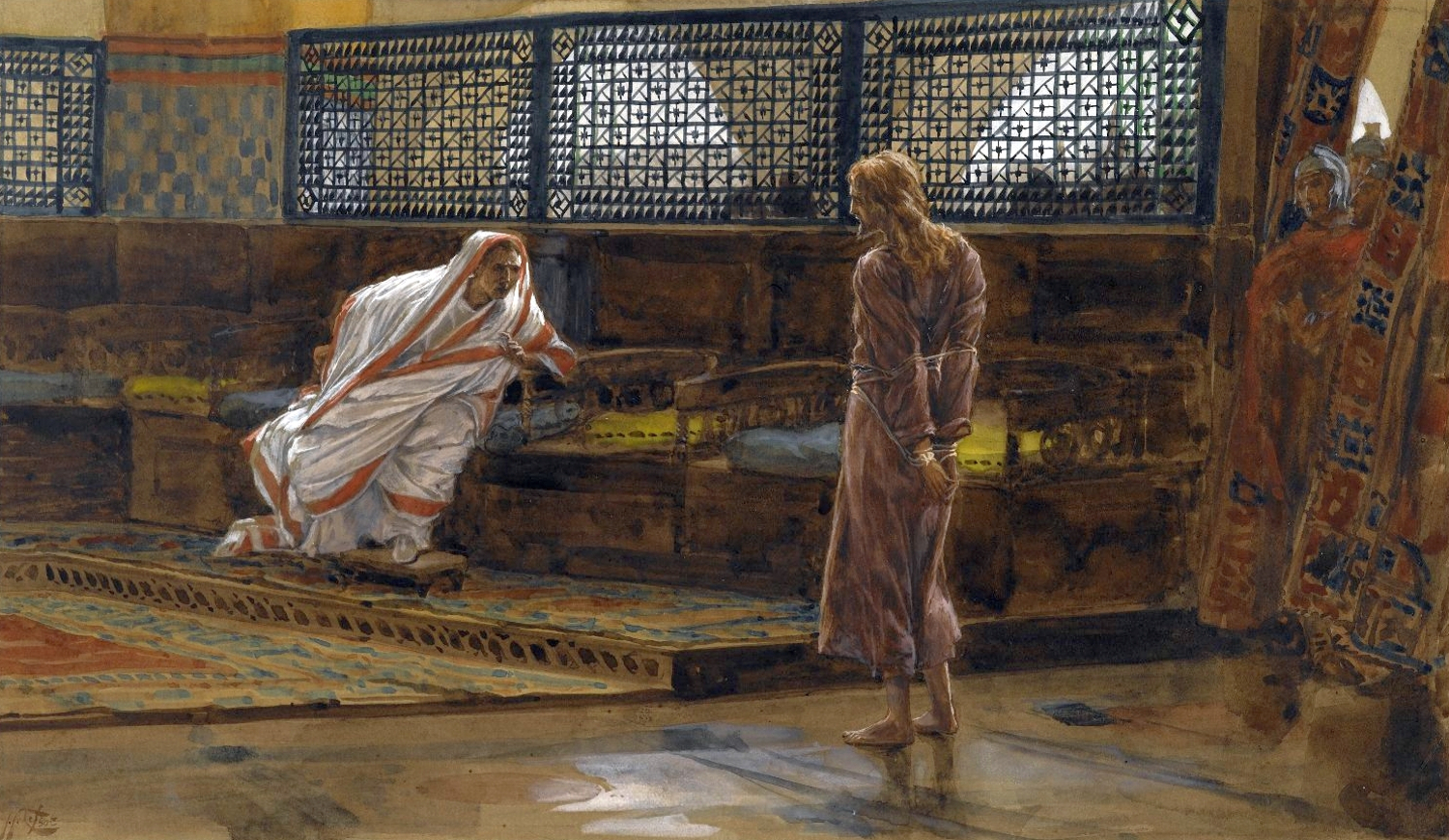This essay first appeared in our weekly Scripture reflection newsletter on November 23, 2024.
Jesus Christ is my king. Let me state that at the outset, in case there is any doubt. Even though I’ve never lived in a kingdom (United or otherwise) I can confidently say that the person in charge of my life in every way (even when I turn away from him) is Jesus. I would imagine that most readers of this reflection would say the same thing, as would most Christians.
But what kind of king is he? I wonder how many Christians, despite sporting bumper stickers on our cars that say “Jesus is Lord,” would like the kind of king he was in first-century Galilee and Judea? In fact, today’s readings show a progression in how some people thought about the coming Messiah (about which there were different expectations) versus what came to pass.
The “Son of Man” in the Book of Daniel is a figure that inspires awe: He receives “dominion, glory and kingship” and “all people, nations and languages serve him.” The Responsorial Psalm speaks of another grand ruler, “in splendor robed.” And the Book of Revelation describes an even more exalted figure, who is the Alpha and the Omega, that is, the beginning and the end, “the one who is, who was and who is to come, the almighty.” I don’t think one could describe anyone more powerful.
All this is true about Jesus Christ, the King of the Universe.
When asked what kind of king he is, he is clear: “My kingdom does not belong to this world.”
Yet today’s Gospel offers us something even more important than those descriptions (two of which were written before Jesus appeared on the scene). That is, how Jesus presents himself as he stands before Pontius Pilate. And it is not as a worldly king. He is not clothed in any sort of finery. In fact, a few sentences before this, we are told that Jesus has already been struck in the face and is bound. It’s also “early in the morning.” So we can imagine him dressed simply, with a black eye, probably bloodied, sleep-deprived and his hands tied with rope. Not someone “in splendor robed.” In fact, just the opposite.
And when asked what kind of king he is, he is clear: “My kingdom does not belong to this world.” Of course his kingdom is greater than anything Pilate could imagine—and as the governor of Judea, an official of an empire that spanned much of the known world, he could imagine quite a bit. But Jesus is not simply saying that his kingship (in Greek his basileia, perhaps more accurately translated as his “reign”) is greater than this, but that it’s decidedly not worldly. As Raymond E. Brown writes in his Introduction to the New Testament, “Jesus, who scarcely speaks to Pilate in other Gospels, explains that his kingship is not political.”
Jesus definitively sides with all those who are bound, all those who are beaten, all those who are spat upon and all those who are executed.
“His kingship is not political.” Let’s ponder that for a moment. Jesus’s way of being a king is to enter Jerusalem on a donkey (rather than, say, being pulled by a chariot), then to allow himself to be bound, beaten, spat on, crucified and ultimately executed in one of the most shameful ways possible. In this, he definitively sides with all those who are bound, all those who are beaten, all those who are spat upon and all those who are executed. And, as my friend George William, S.J., Catholic chaplain at San Quentin Prison in California, often points out, Jesus is not only the world’s most famous victim of capital punishment; he also spent time on “death row.”
That’s the king we have. Our king is also one who during his public ministry lived simply, sided with the poor and sick even when it brought him opposition, and consistently refused every type of honor. His temptations in the desert were incitements to choose a life of safety, comfort, and above all, power. Jesus rejected it all. Finally, in case there is any further doubt, he told his disciples, before he was executed, that the true leader is the “servant of all.”
Jesus Christ is the king of poverty, the king of humility and the king of the marginalized. Let us follow him.




